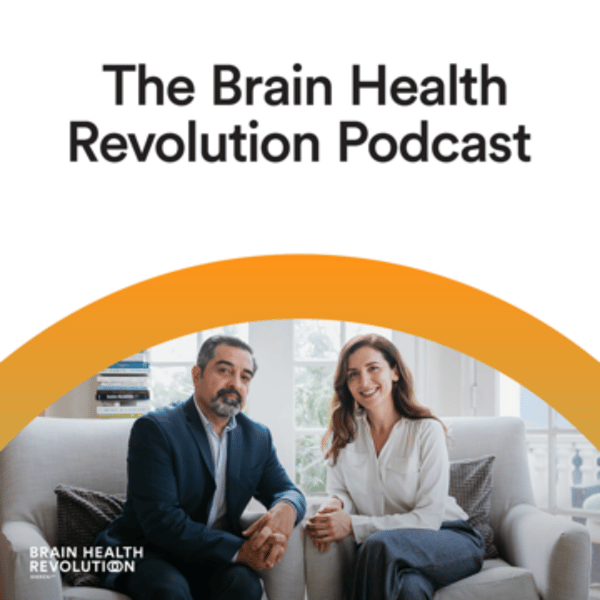Statins and Risk of Alzheimer's Disease
The Brain Health Revolution Podcast
Dean and Ayesha Sherzai
4.8 • 604 Ratings
🗓️ 26 May 2022
⏱️ 45 minutes
🧾️ Download transcript
Summary
This episode was broadcasted as a Live video to our Brain Health Revolution online community, where we engage on a daily basis to discuss the latest on brain health, have Live Q&As, Live cooking sessions, polls and more.
We discussed the latest data on statins, a common class of cholesterol lowering medication and focused on a recent systematic review and meta-analysis on the subject. Here is the link to the article:
For more reading, here are other published scientific articles on the subject:
Statins in Alzheimer’s disease (2022).
Unraveling the Paradox of Statins with Human Neurons: New Leads in Alzheimer’s Disease (2019).
Do statins prevent Alzheimer's disease? A narrative review (2015).
Effects of Statins on Memory, Cognition, and Brain Volume in the Elderly (2019).
Statins and Alzheimer's disease. The answers have not come of age yet. (2022).
Statin therapy and risk of Alzheimer's and age-related neurodegenerative diseases (2020).
Check out our online community: Brain Health Revolution
Follow us on social media:
Instragram: We recently changed our handle to The Brain Docs (@thebraindocs)
Facebook: Sherzai MD
Website: Sherzaimd.com
Transcript
Click on a timestamp to play from that location
| 0:00.0 | Today we wanted to talk about a very important topic. |
| 0:09.0 | We think that this is probably the kind of topic that's been so confusing to so many. |
| 0:15.0 | And there's so many versions of this topic that it just has caused a great deal of noise. |
| 0:22.5 | And the topic is actually about cholesterol, which we think is incredibly important to know. |
| 0:29.3 | But the two of us have begun to think that a big driver, a major driver of dementia, |
| 0:35.9 | is the lipid pathway, the cholesterol pathway, probably disproportionately. |
| 0:42.1 | And it's true, definitely so for stroke. |
| 0:44.3 | Absolutely. |
| 0:44.6 | You would speak to that. |
| 0:45.3 | Yes. |
| 0:45.9 | So we wanted to start with some stories, some cases that are usually not spoken about |
| 0:52.9 | in clinical trials or in journals because they never come |
| 0:58.1 | to that point because it's not considered the disease yet, but it's, I think, ubiquitous. |
| 1:03.6 | And this is something that we have to speak about. |
| 1:06.0 | On my end, I'll start with an example. |
| 1:08.2 | I'm not going to name names for HIPAA purposes, but a 53-year-old lady and who was experiencing some memory issues. |
| 1:20.4 | In fact, for the most part, she wasn't aware of it herself, |
| 1:24.2 | but the family was becoming aware of it. |
| 1:27.1 | It was affecting their life. It was affecting |
| 1:30.3 | their relationships because with the memory problems comes frustrations without people knowing so. |
| 1:35.3 | And with the frustrations comes all these difficulties in social and family communication. |
| 1:42.3 | And the person actually attributes it to external variables, |
... |
Please login to see the full transcript.
Disclaimer: The podcast and artwork embedded on this page are from Dean and Ayesha Sherzai, and are the property of its owner and not affiliated with or endorsed by Tapesearch.
Generated transcripts are the property of Dean and Ayesha Sherzai and are distributed freely under the Fair Use doctrine. Transcripts generated by Tapesearch are not guaranteed to be accurate.
Copyright © Tapesearch 2025.

